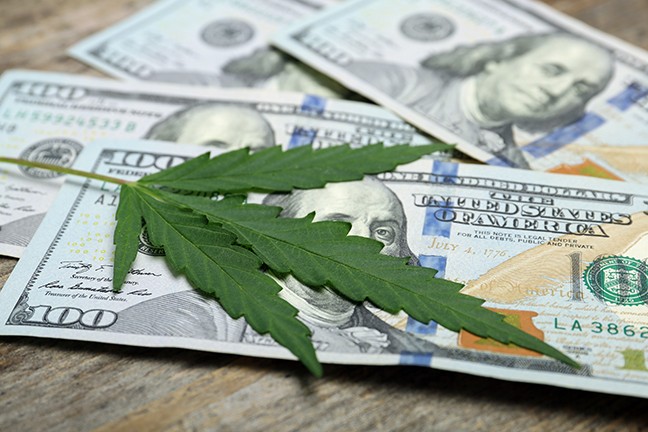It's a story every Intro to Economics student has heard before. A market is profitable, so firms enter the market until it's not profitable, then leave the market until it is and continue the cycle until it reaches equilibrium. It's one of the first steps in free-market correction.
While we often think of free-market dynamics as fairy tales of the right to justify looking the other way, that story is playing out up and down the West Coast right now. And judging by the articles written about it, it's not a pretty picture.
Oregon has a six-and-a-half-year supply of cannabis, according to a recent article from The Stranger in Portland. Oregon retailers can buy a pound of cannabis for around $600 (up from $400 last August). Pre-legalization, a pound would go for anywhere between $3,000 to $4,000.
A pound of cannabis goes for $600 in Washington too. Colorado and California have it a bit easier at $900 and $1,000 per pound, respectively.
Now, cheap cannabis sounds like a great thing. As consumers, that's certainly what we want.
But for those who want to sell cannabis, it's the pits.
Oregon has 2,200 producer licenses. Washington has 1,200 and Colorado has 1,400. Now that the price of cannabis has fallen so low many of those growers face going out of business—their dreams crushed by the invisible hand.
Unless they get rid of their product, that's what will happen. Meanwhile, cannabis consumers are happy and don't feel like buying more cannabis.
So, who are the wanton suppliers to sell to? Well, the same people they sold to before.
A pound of cannabis fetches a much higher paycheck in Idaho than Washington or Oregon. The kicker is that only a third of Oregon's growers have undergone a single inspection, so the state doesn't even know how much cannabis licensed growers may be exporting.
The problem is magnified in California. The state has had such trouble issuing licenses that people are tired of waiting and getting rid of it any way they can, whether that be out of state or to unsanctioned dispensaries.
The Colorado Department of Revenue claims to be keeping a close eye on production to prevent an oversupply. Apparently it's working, because it's the only state people aren't clamoring about too much cannabis.
It's a good thing for Arizona to keep a close eye on these markets and what it means for the upcoming bid for adult-use cannabis in 2020. The topic of contention will be how many licenses the state issues.
Consumers have no incentive to limit the number of cannabis suppliers. For them, it just means cheaper cannabis. But for those hoping to make a buck in the industry, it's a tricky matter.
On one hand, potential suppliers want enough licenses to have a chance of getting one. On the other, they don't want so many that it's unlikely they'll hold on to it.
With members of the Arizona Dispensaries Association guiding the legalization effort this time around, it's a safe bet they'll want to keep a tight grip on their market share. But will voters allow that?
While the specifics of how many licenses the initiative will allow, or how it determines that number, remain under wraps, it's almost arbitrary. There's no right answer.
It depends on whether, like news outlets up and down the West Coast, you find free market corrections, cheap cannabis and bankrupt businesses a bad thing, or whether you believe in artificial market restrictions that favor the people who put them there.
It seems like a tough sell for voters, but never underestimate the power of the hype.










